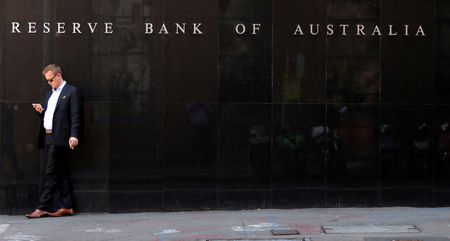 1
1 1
1

SYDNEY (Reuters) – Australia’s government is advertising a job on the policy-setting board of the Reserve Bank of Australia, the first time the powerful position has been thrown open to all comers amid a push for more diversity at the central bank.
An ad on the government’s jobs portal on Thursday called for candidates with knowledge or experience in economics, labour markets, financial markets, industry of public policy formation, as well as strong communication and strategic thinking skills.
“The Reserve Bank of Australia is committed to creating a diverse and inclusive workplace, and the Government is committed to ensuring that Australia’s institutions appropriately reflect the diversity of our community,” said the ad on Australian Public Service.
The Reserve Bank Board comprises nine members, with three ex officio members – the Governor, the Deputy Governor and the Secretary to the Treasury – and six non-executive members, who are appointed by the Treasurer.
The Sydney Morning Herald first reported on the job posting.
The government is weighing its response to an independent inquiry into the Reserve Bank’s governance and policy record amid its most aggressive tightening campaign in modern history.
Australian Treasurer Chalmers said he would receive the RBA review on March 31 and would make a decision towards mid-year about whether to extend Governor Philip Lowe’s term by another three years.
The review, announced by Chalmers in July, is assessing issues such as how the RBA communicates with the public and which inflation targets to follow.
It comes after the RBA undershot its inflation target of 2% to 3% for much of the last decade and issued guidance during the COVID-19 pandemic that rates were not expected to rise until at least 2024.
Now, consumer price inflation is running at a 32-year high of 7.8% and is only projected to return to the top of the bank’s target range of 2% to 3% by mid-2025.
(Reporting by Stella Qiu and Wayne Cole; Editing by Lincoln Feast.)